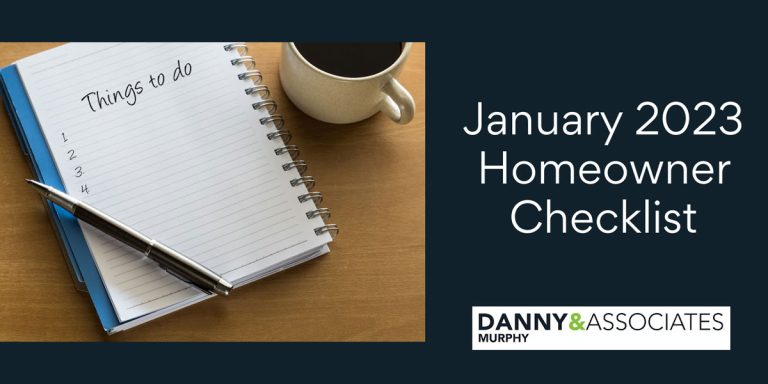10 Ways to Get More Money for Homeowner Tax Deductions
Homeownership has benefits. Here are 10 ways to get more money for homeowner tax deductions.
As a homeowner, your 2014 tax forms might as well have “déjà vu“ stamped all over them, especially since Congress has extended some temporary forms of tax relief.
So relax. You know the drill.
Or do you?
Let’s find out. Before you do your taxes or gather the paperwork for an accountant to do them, take our quiz on the credits, exemptions and deductions a homeowner can claim for 2014. It may help you ballpark that big refund.

10 Ways to Get More Money for Homeowner Tax Deductions Quiz:
- You can deduct up to _________ on your mortgage interest.
- If you’re going to claim a home office as a deduction, the room must be used exclusively for business – true or false?
- A ___ percent tax credit for residential energy-efficiency improvements was extended through 2014.
- When can the credit for an energy improvement be used?
- What is the limit on the number of residences for which homeowners can deduct the property taxes they pay?
- To qualify for a capital gains exclusion on a home sale, you must own and live in a home for at least __ of the past __ years before selling it.
- There’s no limit to how many times you can take an exemption on the sale of a home – true or false.
- Are property insurance premiums deductible?
- If you got a reduction in the balance of a mortgage, is the forgiven amount still considered taxable income?
- Private mortgage insurance can be deducted for 2014 – true or false?
10 Ways to Get More Money for Homeowner Tax Deductions Answers:
- You can deduct up to _________ on your mortgage interest.
You can deduct up to $1 million on interest for mortgages to buy, build or improve a home (or $500,000 if you’re married, filing separately). Also, you can deduct up to $100,000 (or $50,000 for married, filing separately) for interest on loans secured by the residence, such as a home equity line of credit, which can pay for, say, college tuition.
This rule also applies to second homes, though not if they’re rented out for more than two weeks in any given tax year.
But accountants say some homeowners erroneously think all mortgage interest paid is deductible.
“It comes up all the time,” said Chris Stamos, a certified public accountant and partner at Stamos & Stamos in Villa Park. “If you buy a house for $1.3 million and you finance the whole thing, only interest on the first million dollars of debt is deductible.” - If you’re going to claim a home office as a deduction, the room must be used exclusively for business – true or false?
True. If you’re claiming this deduction, don’t even think about turning that room into an office/gym, or an office/occasional spare bedroom.
The home office – whether it’s actually in the house or perhaps in a garage or studio – must be used “regularly and exclusively” for business, and the deduction must be tied to the income derived from the business, said Stephen A. Stafford of Brown & Streza in Irvine.
A simplified option for claiming the deduction became available in 2013, he said. If you use the simplified option, the home office deduction is limited to $1,500 per year, based on $5 per square foot for up to 300 square feet.
Or you can go with the itemized deduction, which involves computing the portion of the home used for the office and digging out receipts for a variety of expenses, including maintenance and home repair.
“It’s a lot more work,” said Aaron Martinez, a tax adviser at H& R Block in Beverly Hills. “If they take the flat $1,500, they don’t have to show any receipts at all.”
Some folks think claiming a home office deduction isn’t worth sending up what they fear will be a red flag.
“It’s not scrutinized (by the Internal Revenue Service) the way it used to be,” Stamos said. But people have an aversion to taking the deduction because they think it’s going to get them audited.”
If you’re entitled to it, he said, “You should take it.” - A ___ percent tax credit for residential energy-efficiency improvements was extended through 2014.
A deduction can be taken on 10 percent of the cost of the improvements at a primary residence, with a lifetime limit of $500. The change might include such features as energy-efficient windows, doors or skylights, a tankless water heater, air conditioning or insulation.
“I’d say the most common ones are the windows and the tankless water heater,” Martinez said. “A lot of the older houses in Los Angeles, they have single-pane windows. And when they switch to dual-pane windows, their utility bills decrease significantly. It’s a big savings.”
A less commonly claimed credit is the Residential Energy Efficient Property Credit, which is not part of the extension and is in effect through 2016. It offers a credit of up to 30 percent on equipment and labor costs for such improvements as solar electric systems, solar water heaters and geothermal heat pumps. - When can the 10 percent credit for an energy improvement be used?
The credit must be claimed for the year in which the improvement was installed. “When they’re doing the construction, the contractor hands them a bunch of bills,” Martinez said. “Usually we don’t have a problem getting to the $500.” - What is the limit on the number of residences for which homeowners can deduct the property taxes they pay?
You can deduct property taxes on however many homes you have, and even on vacant land you own. But you can’t deduct one-time assessments for costs such as street improvements or sewer lines. - To qualify for a capital gains exclusion on a home sale, you must own and live in a home for at least __ of the past __ years before selling it.
To qualify for the $250,000 capital gains exemption on a home sale – or $500,000 if married and filing jointly – you must own and live in the home for at least two of the past five years before the sale closes.
Martinez said he’s seen people get into trouble on that one. - There’s no limit to how many times you can take an exemption on the sale of a home – true or false.
True, there is no limit. “It’s not one time for life,” Stamos said. “That’s one of the things people think: ‘I already did it, I can’t do it again.’ ” - Are property insurance premiums deductible?
Nope. Also not deductible: homeowner association dues, closing costs or additional mortgage premium payments or any depreciation of your home.
“I have seen people put their homeowners insurance on their tax return,” Martinez said. “They’ll try to deduct it.”
Do-it-yourselfers can be confused by the term “insurance,” meant to represent private mortgage insurance. - If you got a reduction in the balance of a mortgage, is the forgiven amount still considered taxable income?
Temporarily, no, according to the IRS. Tax relief for mortgage debt forgiveness was among dozens of tax breaks that Congress extended for the 2014 tax year. The extension means that debt forgiven on a mortgage for a primary residence – up to $2 million – will not be taxed. But it was only a retroactive, one-year extension.
That’s another claim that tends to be scrutinized, Martinez said. In California, he added, mortgage debt forgiveness is not available for 2014. - Private mortgage insurance can be deducted for 2014 – true or false?
True. This deduction on the cost of insurance required for mortgages on primary homes (typically when a down payment is less than 20 percent) was extended through 2014 for homes purchased in 2007 or later.
Qualifying homeowners have adjusted gross incomes of less than $100,000 (or $50,000 for married, filing separately). Above those amounts, a phaseout begins. The deduction is reduced by 10 percent for each $1,000 a filer’s income is over the limit, and it disappears completely for most homeowners whose AGI is $109,000 (or $54,500 for married, filing separately taxpayers).
For the most part, California conforms to federal law on homeowner tax breaks, Martinez said. But he noted that while the IRS allows the itemized deduction for the cost of private mortgage insurance, it cannot be deducted from your state taxes.
This quiz was meant as a guide. The experts suggest you do additional research or consult a tax adviser before filing.
Want to learn more about Danny Murphy & Associates?
Click on the video below to see and hear more about the industry leading, CLIENT FIRST services that Danny Murphy & Associates provides to their buyers and sellers.

Have more questions about homeownership? Contact Danny Murphy & Associates here, or give us a call at 949-413-6967.





